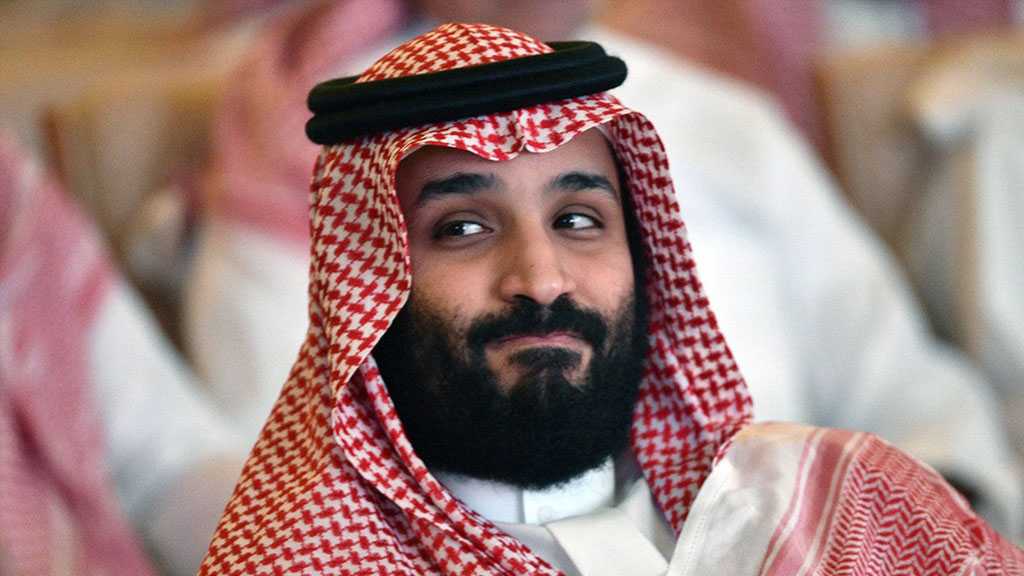
How Saudi Arabia Gets Away with Murder

By Steven Cook – Foreign Policy
On Wednesday, the Saudis opened their annual confab in Riyadh, officially called the Future Investment Initiative but widely referred to as “Davos in the Desert.” That nickname had always annoyed the people who run the World Economic Forum and its signature event in Davos, Switzerland, because they—like most of the rest of the world that is concerned about protecting their brand—haven’t wanted much to do with Saudi Arabia and its crown prince in recent years.
That trend may be coming to an end, however. Increasingly, things are back to business as usual in Riyadh. A veritable A-list of Wall Street and private equity titans flew in for the event this week. Gone are the days when the leaders of the financial services industry stayed away, fearing the reputational costs of becoming associated with Saudi Arabia’s Crown Prince Mohammed bin Salman after the murder of Jamal Khashoggi in 2018. The remains of the journalist and onetime courtier to Saudi power centers have yet to be found. But investors have now decided there are deals to be done.
They are making a bet that the stated commitment by human rights organizations, journalists, and a relatively bipartisan group of US lawmakers to hold Saudi Arabia accountable doesn’t amount to much—and they may be right.
There is a general expectation in Washington that the Saudis are going to have a rough time with the new Biden administration. During the presidential campaign, Joe Biden and his running mate Kamala Harris vowed that they would “reassess our [America’s] relationship with the kingdom, end US support for Saudi Arabia’s war in Yemen, and make sure America does not check its values at the door to sell arms or buy oil.” After being sworn in as president earlier this month, Biden made good on that promise when he froze—at least temporarily—arms sales to Saudi Arabia that his predecessor approved.
Saudi Arabia is a problematic ally. In the last five years, its crown prince launched a futile military campaign in Yemen that has killed and injured tens of thousands of people, oversaw the hit team that dismembered Khashoggi, presided over the arrests and abuse of reformers, and led an international embargo of Qatar [which is also a not a model ally, but it is a critical security partner for the United States]. There are also lingering questions about Saudi Arabia and the role of its citizens in the attacks on New York and Washington in 2001. As much as the Saudis want Americans to forget, there were 15 young Saudi men on those planes, not Qataris.
It is true that Crown Prince Mohammed bin Salman has overseen important social changes in Saudi Arabia that have improved the lives of his citizens, but that does not diminish the entirely reasonable desire to hold the Saudis accountable for his many transgressions. Doing so may be harder than it seems, however.
There was never a chance that the global business community was going to write off Saudi Arabia. Sure, CEOs stayed away for a while, but even at the height of the outrage over Jamal Khashoggi’s brutal murder, Saudi Arabia remained a place where people believed they could make money. And since that is the sine qua non of financiers, consultants, and oil companies—and firms that provide all kinds of services—Mohammed bin Salman was forced to spend some time in the penalty box, but he was never made the international pariah some hoped he would become. Yes, the Saudis have a range of economic problems, the wisdom of vanity projects like the would-be high-tech city of Neom escape most people who look at them, and Riyadh’s efforts to restructure its labor market and establish the institutions of a market economy are enormous and difficult tasks—but the Saudis still have the biggest economy in the Middle East, which makes it an attractive partner to those who showed up in Riyadh for the Future Investment Initiative.
There is an argument to be made that just because business leaders want to consort with the Saudis that does not mean that the US government is obligated to do the same. That’s true enough—but that’s not to say Washington is simply free to do whatever it likes. It faces the constraints of geopolitics. At the same time that leaders of industry were rubbing shoulders in Riyadh, the US military was beefing up its presence in Saudi Arabia just in case there is conflict with Iran. US military planners see Saudi Arabia as an important partner in Iran policy. That includes the potential Iran policies under consideration by the Biden administration, whether they involve rejoining the 2015 nuclear agreement or negotiating a new deal. To make either work, the administration is going to need Riyadh to support the deal, which means that American negotiators are going to have to be sensitive to Saudi concerns.
Related to Iran and the geopolitics of the region is the war in Yemen. The Saudi assault on its neighbor to the south, which began in 2015, accomplished everything the intervention was supposed to prevent. As a result of Riyadh’s poorly thought-out and poorly executed military operations, the Iranians now actually do have a relationship with Ansarullah, and Saudi Arabia is less secure. The war is unwinnable, and the Saudis need to get out. What remains to be seen is whether they can do so without US help. The Saudis would no doubt like that help in the form of enhanced border security, including weapons systems.
This is going to be a tough decision for the administration given the strong strain of animus toward the Saudis in Washington and the Biden-Harris team’s own stated policy to “reassess” America’s relationship with Saudi Arabia. One argument they might respond with is: Screw them. Let them figure out how to get out of their own quagmire. That is understandable, but it’s not wise. It is in America’s interest both for the Saudis to get out of Yemen and for them to maintain good ties with Washington. Like it or not, Saudi Arabia is Washington’s primary interlocutor in the region, and an American deal with Iran is going to have to run at least partway through Yemen.
But should the United States cut the Saudis off from what they seem to love most about America—its fancy weapons systems? This is no longer in the realm of theoretical. The Biden administration’s ongoing review of Saudi Arabia will assess how it uses American weapons, specifically how many civilians it has killed and maimed in the process. Given the damage inflicted by Saudi Arabia in Yemen, such a reckoning is appropriate. But even if it allows Americans to take further steps to end their complicity in Saudi Arabia’s Yemen debacle, one should also acknowledge that it will not end that war.
Lost in all the discussions about “accountability” is the problem of defining what it would actually look like. Do Saudi Arabia’s critics want to see the crown prince replaced or in the dock? The United States is not going to determine Saudi Arabia’s leader. Even if the US intelligence community releases what it knows about the murder of Khashoggi—as the Democratic chairman of the House Intelligence Committee, Rep. Adam Schiff, has demanded, and as the new director of national intelligence, Avril Haines, committed she would do in her written response to questions from senators during her confirmation hearings—Mohammed bin Salman will be the crown prince the next day and the day after that and the day after that, and so on. No doubt it would cause an international uproar, forcing those currently attending Davos in the Desert to stay away for a few years or maybe more. But they will find their way back to Saudi Arabia so long as they calculate that doing so is still good for business.
Also missing in the chatter about accountability are the potential consequences of imposing it. This isn’t to dismiss the idea of calling out the Saudis and refusing to sell them weapons out of hand but rather a plea to weigh the costs and benefits of such an approach. The Saudis may prove unwilling to work with the United States on a new nuclear deal with Iran or even try to undermine an agreement. Riyadh may feel encouraged to drift toward Washington’s competitors. Folks in Washington might dismiss that as idle threats, but the Chinese have a lot to offer, and the Russians are particularly good at taking advantage of stress between the United States and its traditional partners in the region. At the very least, tighter ties between the Saudis, Chinese, and Russians can make things harder for the United States, especially since great-power competition is now alleged to be the framework for American foreign policy.
Then again, US policymakers may not care about the downside risks of holding the Saudis accountable. Energy resources from the Persian Gulf are still important to the United States, but not like they once were, diminishing the urgency long attached to the Middle East and importance of close ties with countries like Saudi Arabia. The stakes may no longer be so high, giving the Biden team more room to maneuver. It just seems that up until now few inside the Beltway have worked through what accountability means in a rigorous way. That is unfortunate, because foreign policy by exhortation is likely to fail.
Comments



